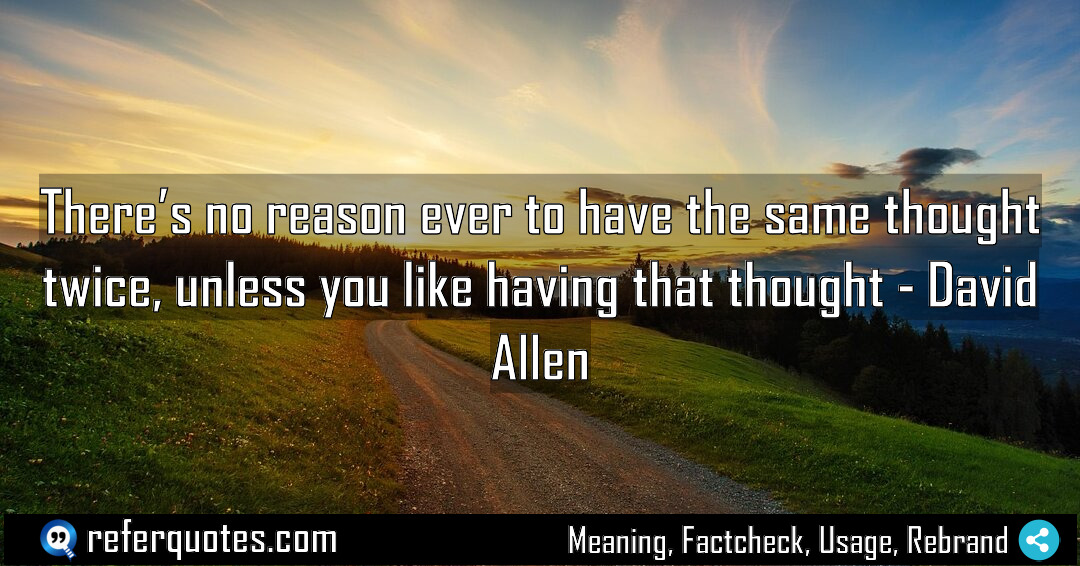There’s no reason ever to have the same thought twice… it’s a game-changer for mental bandwidth. This isn’t just a productivity tip; it’s a fundamental principle for freeing up your brain’s RAM. Once you start applying it, you stop juggling mental to-do lists and start actually doing them.
Share Image Quote:Table of Contents
Meaning
At its core, this quote is about mental efficiency. It means your brain is for having ideas, not for holding them.
Explanation
Let me break it down for you. Your mind is an incredible, brilliant processor. But it’s a terrible, I mean a *terrible* filing cabinet. When you try to use it as one—by holding onto a thought like “remember to buy milk”—you’re essentially forcing your CPU to do a hard drive’s job. It creates this low-grade, constant anxiety, this mental static. David Allen’s genius was recognizing that if you capture that thought in a trusted system *outside* your head, you literally don’t need to think it again until you’re ready to act on it. You free up that cognitive load. It’s like closing 50 unnecessary browser tabs in your mind. The relief is immediate.
Quote Summary
| Context | Attributes |
|---|---|
| Original Language | English (3668) |
| Category | Personal Development (697) |
| Topics | clarity (95), organization (18), thinking (18) |
| Literary Style | concise (408), witty (99) |
| Emotion / Mood | realistic (354), reflective (382) |
| Overall Quote Score | 77 (179) |
Origin & Factcheck
This line comes straight from David Allen’s 2001 book, Getting Things Done: The Art of Stress-Free Productivity. It’s a cornerstone of the entire GTD methodology that originated from his work with clients in the US. You sometimes see similar sentiments floating around, but this specific phrasing is uniquely his.
Attribution Summary
| Context | Attributes |
|---|---|
| Author | David Allen (50) |
| Source Type | Book (4032) |
| Source/Book Name | Getting Things Done: The Art of Stress-Free Productivity (50) |
| Origin Timeperiod | 21st Century (1892) |
| Original Language | English (3668) |
| Authenticity | Verified (4032) |
Author Bio
David Allen created the GTD methodology and helped millions organize work and life with clear, actionable steps. He began as a management consultant, refined GTD through client engagements, and published Getting Things Done in 2001, followed by Ready for Anything and Making It All Work. He founded the David Allen Company and expanded GTD training globally, later relocating to Amsterdam to support international growth. A sought-after speaker and advisor, he remains a leading voice on clarity, focus, and execution. Explore the David Allen book list for essential reads.
| Official Website | Facebook | X| Instagram | YouTube
Where is this quotation located?
| Quotation | There’s no reason ever to have the same thought twice, unless you like having that thought |
| Book Details | Publication Year/Date: 2001; ISBN/Unique Identifier: 978-0143126560; Last edition: Revised edition published 2015; Number of pages: 352. |
| Where is it? | Chapter 2: Getting Control of Your Life, Approximate page 39 (2015 edition) |
